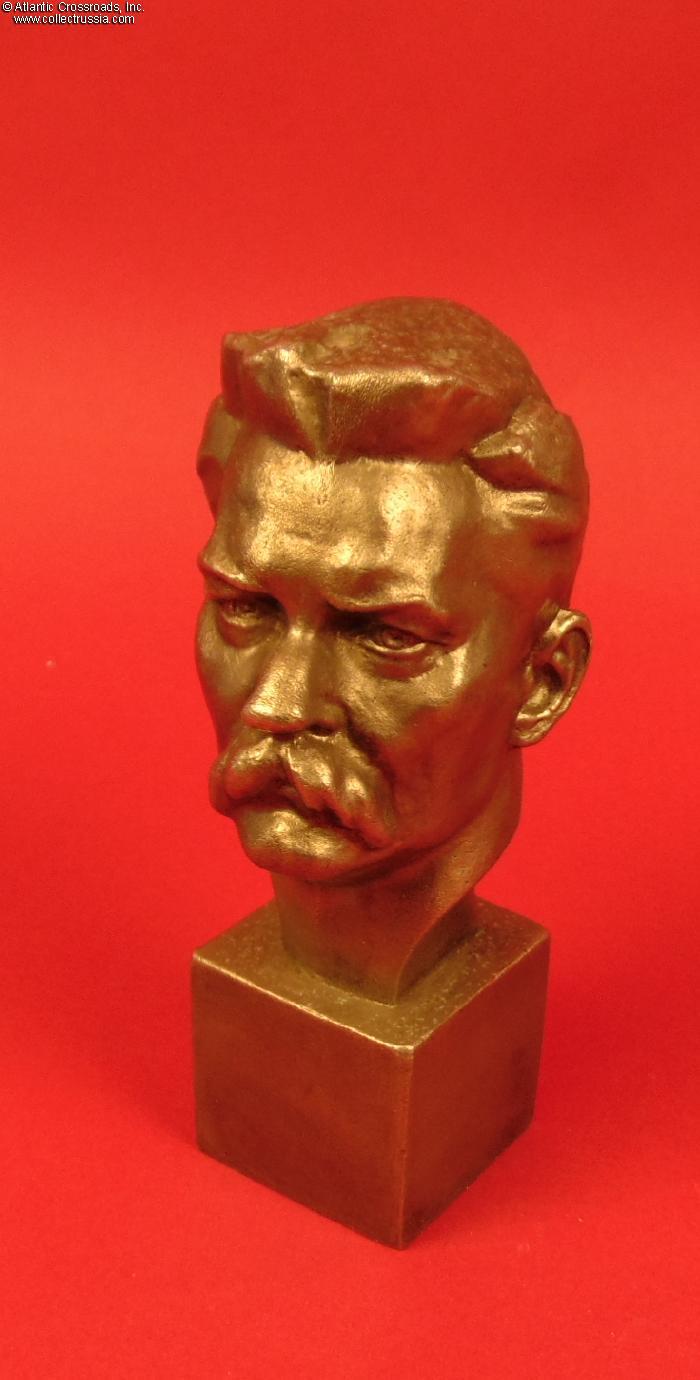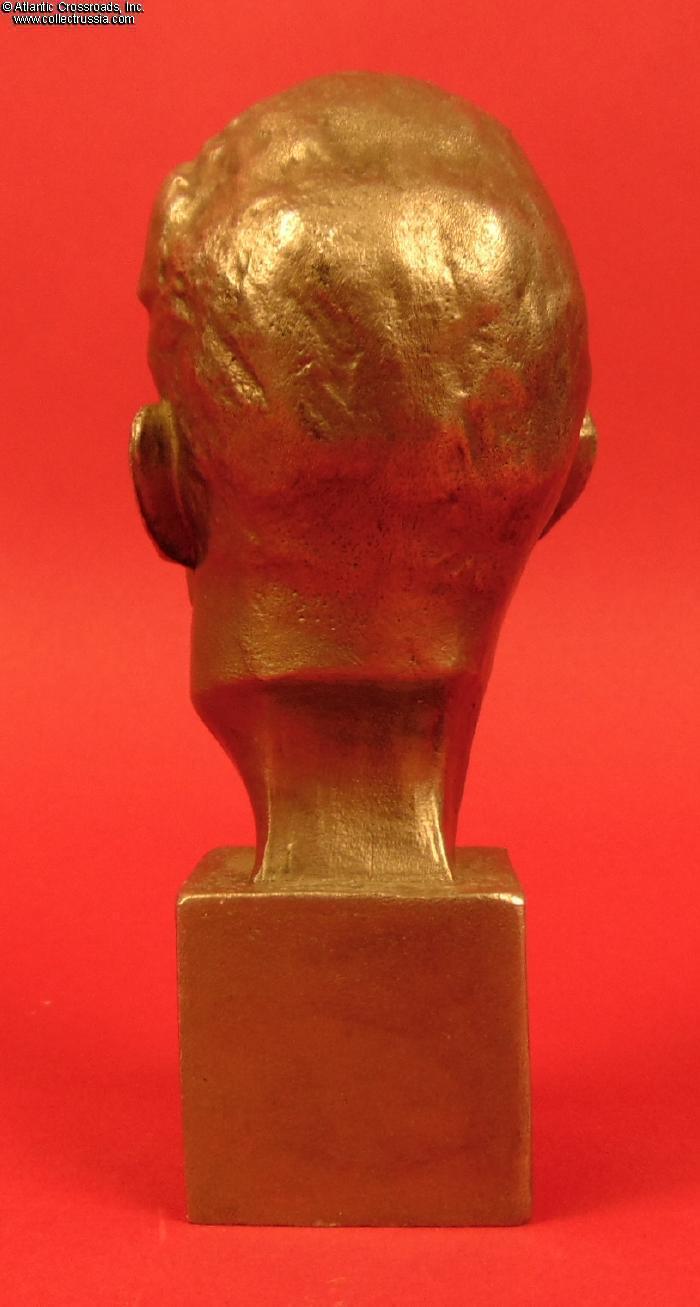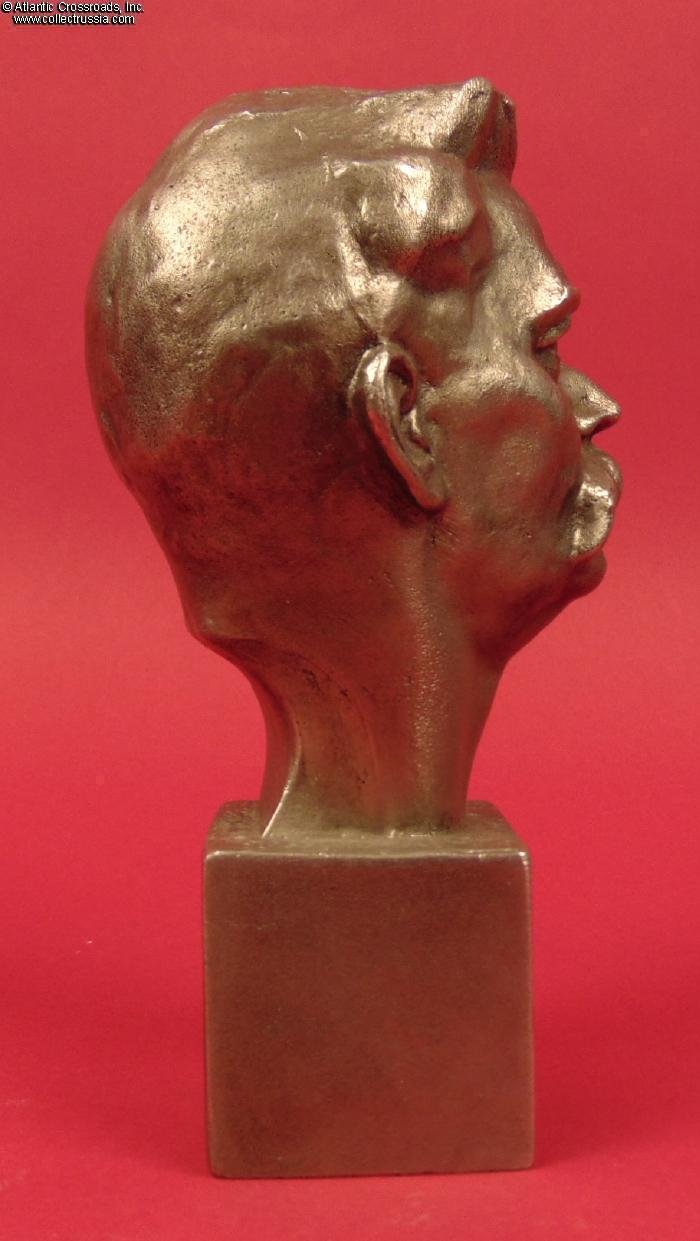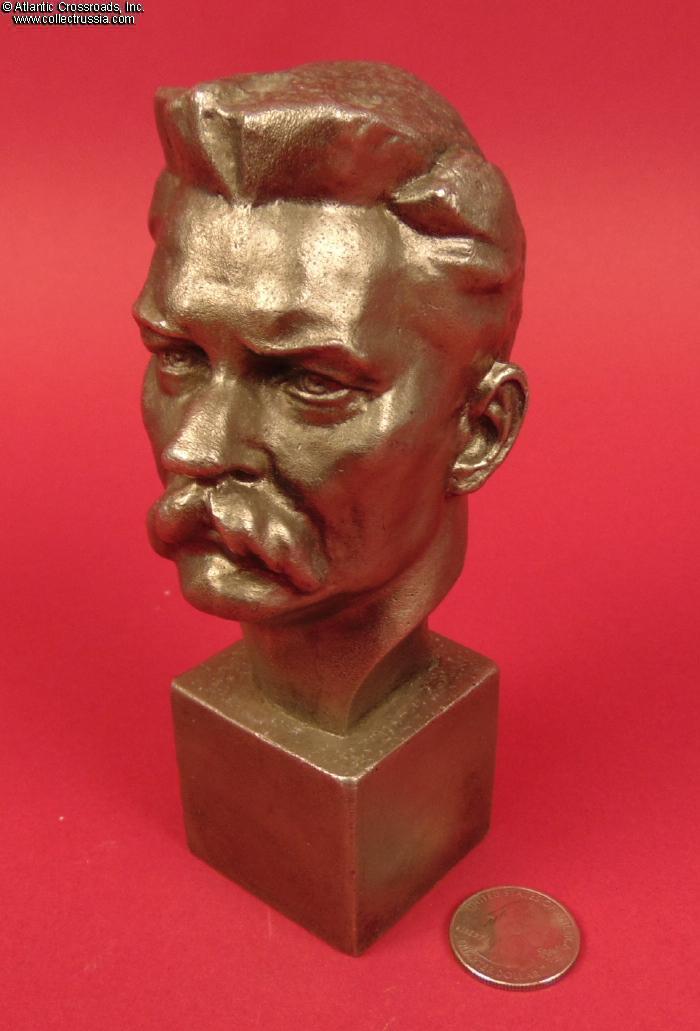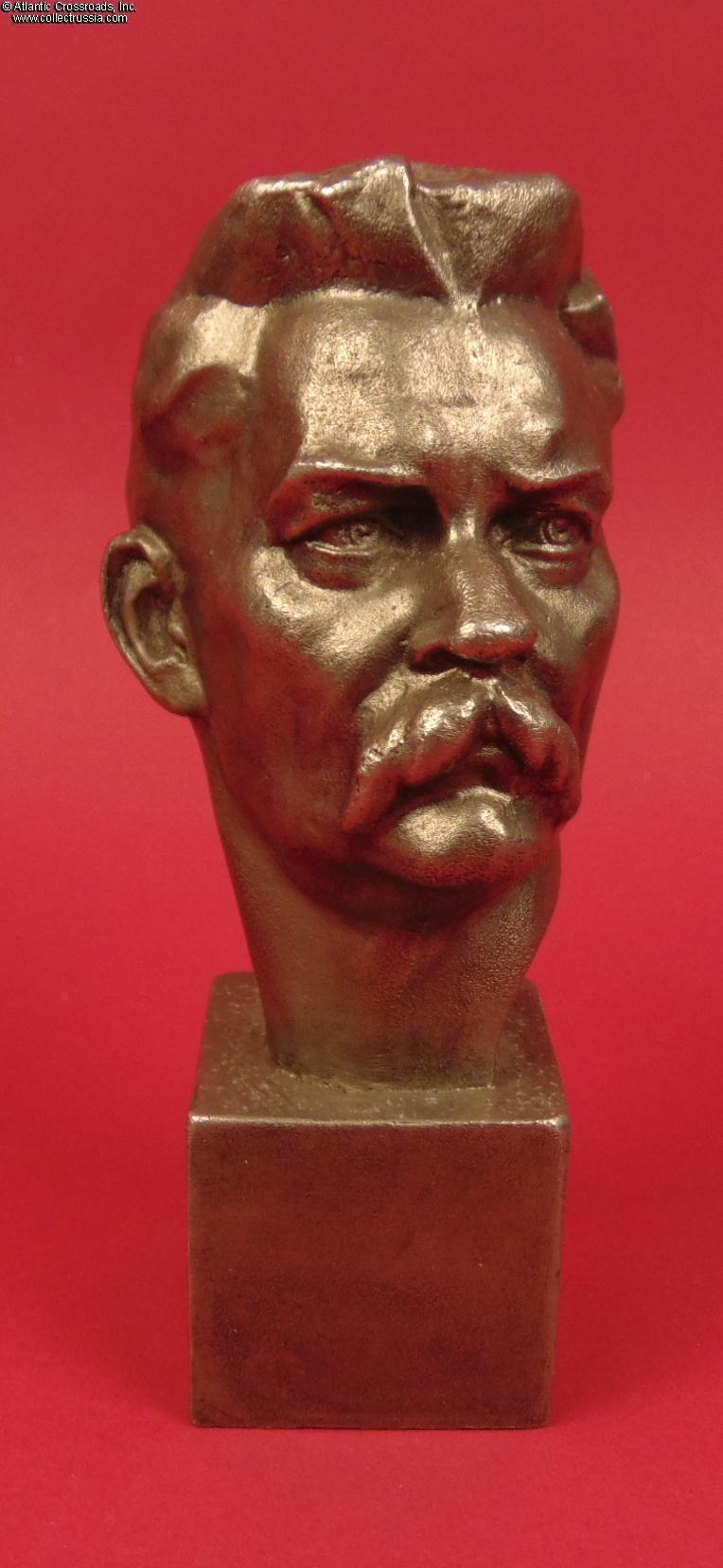
Head Bust of the famous Russian Soviet writer, poet, playwright Maxim Gorky, in heavy Silumin cast, circa 1970.
Measures: height 6", plinth 1 7/8" across; weight 1 lb 10 oz.
High quality of the surface, including the plinth. Even though the bust is hollow, the metal is thick, which explains the rather
heavy weight.
Please note that the coin in the final photo is for size reference.
Outstanding condition. Barely visible traces of age wear on top of the head and top surface of the plinth.
Gorky, which in Russian means "bitter", was the pseudonym of Alexey Maksimovich Peshkov, a famous Russian Soviet writer, poet and playwright, considered the father of Soviet literature and
Measures: height 6", plinth 1 7/8" across; weight 1 lb 10 oz.
High quality of the surface, including the plinth. Even though the bust is hollow, the metal is thick, which explains the rather
heavy weight.
Please note that the coin in the final photo is for size reference.
Outstanding condition. Barely visible traces of age wear on top of the head and top surface of the plinth.
Gorky, which in Russian means "bitter", was the pseudonym of Alexey Maksimovich Peshkov, a famous Russian Soviet writer, poet and
playwright, considered the father of Soviet literature and the founder of Socialist Realism in literature.
Gorky had a chronic respiratory condition. Having tried the super-mild warm climate of Capri, a small island near Naples, Italy, he spent
most of his time there and wrote some of his best novels there, alternating with political activity and propaganda of Socialism. Among
others, he met there with Lenin. Twice, in 1908 and 1910.
After the revolution in Russia and despite his support of Socialism, he preferred to keep the new blood-thirsty regime and himself separate,
continuing to spend most of his time on Capri, surrounded by literary, artistic and leftist political celebrities of the time. The world-
famous Russian bass opera singer Fyodor Shalyapin, who also lived on Capri at the time, was his close friend.
After several years spent in the USA, Germany and then again in Italy, Gorky returned to Soviet Russia in 1928. There, his humane outlook on
life unavoidably clashed with both Lenin's and Stalin's policy of Red Terror. But they needed Gorky as an icon, so he needed to disappear
"naturally". At first, "caring" about Gorky's poor health, they exiled him to a dacha (summer cottage) in the Crimea and would not
let him leave.
Only in May of 1936 Gorky was suddenly allowed to go to Moscow where his two granddaughters had fallen suddenly ill with the flu.
Just a few days later, on June 1st Gorky suddenly fell ill with the flu himself, which quickly exacerbated into a heart condition. On the
surface, all very natural. However, the writer himself did not believe in natural causes of his condition. He was convinced that his son,
who had died under similar circumstances two years prior, had been poisoned.
Despite the show of putting Gorky in a top-notch facility where, some short time before, Lenin had been treated as well, Gorky's
condition continued to worsen and on June 18th he passed away.
Nowadays they prefer polonium. What was their poison of choice a hundred years ago, wouldn't you like to know?..
$45.00 Add to cart

